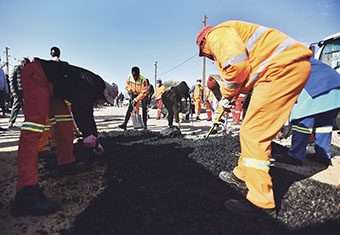Emfuleni municipality is once again in the news for wrong reasons after it was revealed that it has spent half a billion rands paying overtime to workers charged with service delivery.
This was revealed by Mzi Khumalo, Gauteng MEC for corporate governance and traditional affairs.
Khumalo was responding to questions from Kingsol Chabalala, DA member of provincial legislature.
Overtime pay
Khumalo said the balloon payment emanates from overtime pay of field workers who are on the payroll of the municipality.
The field workers form part of waste collectors, drivers, water care workers, electricians, and water and sanitation employees including general workers.
In his response, Khumalo said in total the Emfuleni municipality paid R537 876 300 to the workers from 2018 to 2023.
In 2018/19, said Khumalo, Emfululeni paid more than R89-million for overtime while R101-million was paid for the same reason the following financial year.
In the 2020/21 financial year, the overtime payment ballooned to R102-million, and the following financial year it skyrocketed to more than R124-million before dropping to R120-million in the 2022/23 financial year.
The money was paid into the salaries of employees who are on level seven to 16. These are the workers who earn between R136 000 and R413 000 a year.
Over R500-million spent
Despite non-existent service delivery in the area that covers the Vaal – which includes Sebokeng, Vanderbijlpark, Evaton and Vereeniging among others – the municipality had blown more than R500-million.
Chabalala said there are no results showing despite people having been paid such huge amounts of money, noting that the residents continue to suffer.
“Refuse is not collected on time from the residential areas. In some areas, taps have run dry, and the roads are in a terrible condition filled with potholes and sewage that runs through the streets and piles of rubbish,” Chabalala said.
“This money wasted on overtime could have been used to pay Rand Water and Eskom, who have attached the municipality’s account due to non-payment.
“The MEC claims that the workers who were paid overtime have helped to improve service delivery because they work in the water care works, electrical, and water and sanitation departments.
“However, there is nothing to show for it because service delivery has worsened [in the area].”




